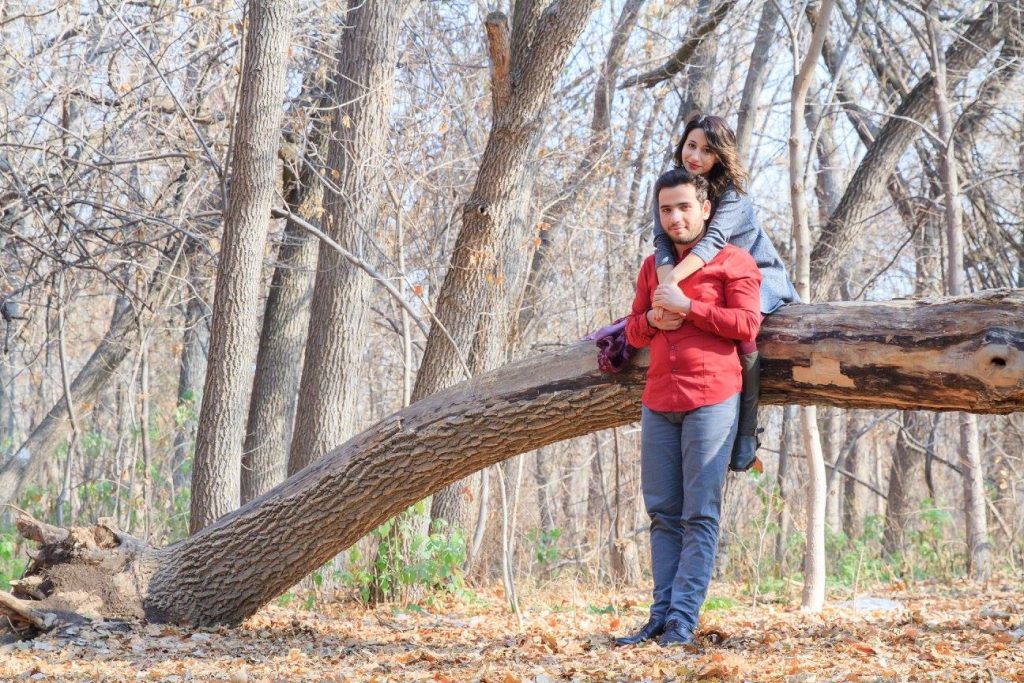What’s it like to get coronavirus – from an Armenian couple who’ve been there and back
More than over 2,000 people have contracted infected in Armenia already, and the curve is moving up.
Many speak of an impending second wave of the coronavirus. But the commandant’s office is gradually loosening previously imposed restrictions. The argument is that the government has no other choice – the economy may collapse.
It is now clear that coronavirus is serious and will be around for a long time. How are we to live now? Get used to new conditions, not notice the disease? Is coronavirus so scary? What does it mean to get sick with this disease?
Hakob Grigoryan and his wife, Hasmik, who beat the virus, told JAMnews about their personal experiences.

How can you get affected?
Hakob and Hasmik got infected at home.
The spread of coronavirus in Armenia at the initial stage – in March, April – proceeded along several branches. That is, the source of infection was clearly known. One of the branches was a light industry enterprise, where a foreign instructor had arrived – an Italian citizen carrying the virus. He had taken medicine to keep the fever at bay while on the business trip, and by the time he left, he had infected dozens of employees, one of whom was Hasmik’s mother.
“As soon as it became known that the disease had entered the factory, the mother of Hasmik was tested the same day. The result was positive. By that time, we had a temperature, and realized that we had likely gotten sick,” says Hakob.
They tested positive.
What does it feel like?
At the first stage, they themselves did not feel anything. But still they self-isolated at home. The first symptom was fever.
“We immediately called an ambulance. Mom was taken to the hospital. After a couple of days, our condition worsened. At the beginning there was a light temperature that you might not even notice without a thermometer,” says Hasmik.
The couple decided not to panic, but to relate to the situation with humor.
“We followed the statistics and knew that young people, basically, have no problems. And if a person has no chronic diseases, then there will be no complications. Because there were no particular fears,” says Asmik.
However, the couple felt their most important mission was to understand who else they could infect:
“We called everyone we had been in contact with. Some were even tested. But no one had a positive result. All our friends constantly measured their temperature.”
What happened next?
“In the first three days we were at home. A local doctor came to us every day, measured our temperature. It was rising. They decided to hospitalize us,” Hasmik continues.
In addition to the temperature, the couple had a headache, a body ache. The peculiarity of the virus is that pains are not constant and replace each other. Hasmik says:
“After hospitalization for three days I had very severe headaches. The temperature rose to 38.5. It was the hardest time for me. After I felt relatively better. Hakop mainly had headache and muscle pain. And also my eyes hurt. Last week, I started having breathing problems.
As if there was not enough air, I wanted to take a deep breath. And for some time this condition did not pass even after I was cured.”
She came to the conclusion that the virus hits precisely the weak spots of the human body.
What does isolation feel like?
The treatment process for the couple lasted three weeks. They were placed in the infectious diseases hospital of Yerevan, which became the main center for hospitalization of patients with coronavirus.
Akop and Asmik were satisfied with the conditions, although they admit that it was hard to remain in such a ‘prison’ for three weeks.
Despite the fact that the couple had a relatively mild illness, they advise taking coronavirus seriously and understanding that this is not an ordinary flu.
“Now, when I leave the house, I notice that there are a lot of people on the streets, despite quarantine. In stores, social distance is not maintained. Life is in full swing, and it seems that nothing happened. Many may not believe that the virus really exists. But I want to say that it does, and it is very dangerous. Let people be more attentive and careful,” says Hasmik.
Hakob adds: “If a person does not think about himself, then let him at least think about others for whom this virus can have dire consequences.”


















